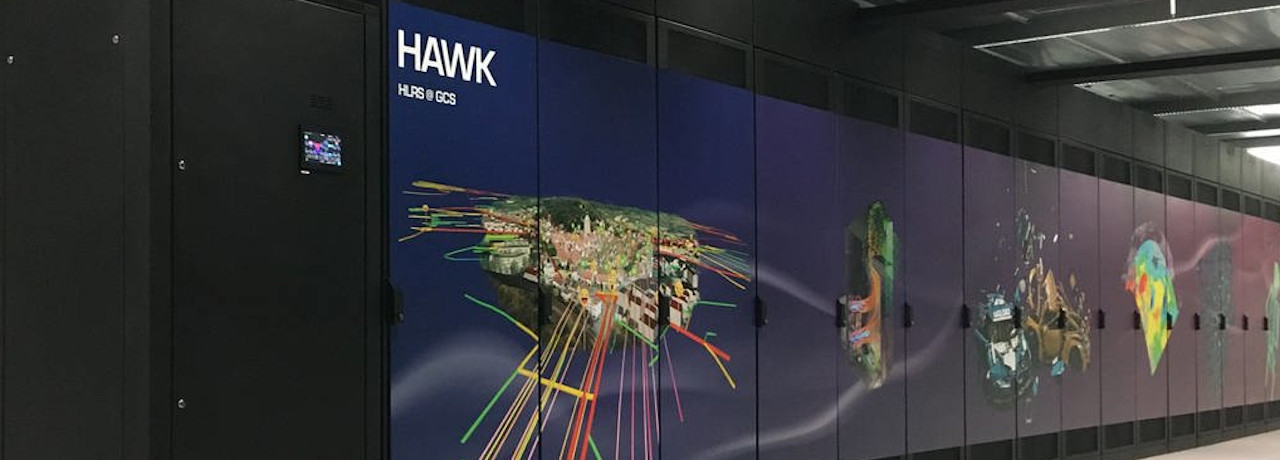EuropeaWhy European Supercomputers Hacked In Mysterious Cyberattacks
Supercomputers Hacked In Mysterious Cyberattacks
A number of high-performance computer systems (HPCs) and knowledge facilities used for analysis tasks were close down this weeks throughout Europe because of safety incidents.
A couple of dozen of those supercomputers are affected in Germany, U.Ok., and Switzerland, leaving researchers not able to proceed with their paintings. Some had been compromised as early as January.
Supercomputers are extraordinarily robust methods constructed on conventional to accomplish high-speed computations. They’re used principally for medical paintings and checking out mathematical fashions for complicated bodily phenomena and designs.
More than one clusters down in Germany
On Monday, notifications began to roll out from the U.Ok. and Germany about supercomputers being close down following cyber assaults.
ARCHER, UK’s Nationwide Supercomputing Carrier, turned into unavailable to researchers on Might 11 because of safety exploitation on its login nodes. The provider stays locked to exterior get right of entry to and contemporary information can be posted the next day.
“Jobs which can be lately working or queued will proceed to run, however you are going to be not able to log in or to put up new jobs”
Any other informs that every one current ARCHER? passwords and SSH keys can be reset. Customers logging in when the provider comes again on-line will want two credentials: an SSH key with a passphrase and a contemporary ARCHER password.
The Baden-Württemberg Prime Efficiency Computing (bwHPC) undertaking in Germany at the identical day introduced a safety incident that made 5 of its clusters unavailable, and not using a time-frame for resuming operations:
- bwUniCluster 2.zero on the Karlsruhe Institute of Era
- ForHLR II on the Karlsruhe Institute of Era
- bwForCluster JUSTUS, used for chemistry programs
- bwForCluster BinAC on the College of Tübingen, used for bioinformatics and astrophysics tasks
- Hawk, inaugurated in February on the Prime-Efficiency Computing Middle in Stuttgart
Leibniz Supercomputing Middle on Thursday notified customers that a safety incident affected its high-performance computer systems, prompting the institute to isolate them from the outdoor international.
Additionally on Thursday, the Jülich Supercomputing Centre (JSC) in Germany introduced that its JURECA, JUDA, and JEWELS supercomputers turned into unavailable because of an IT safety incident.
By way of the top of the week, a minimum of 9 supercomputers in Germany had been impacted by way of cyber assaults, in keeping with SPIEGEL journalist Patrick Beuth.
An identical observes, used to be posted for the Taurus machine on the Technical College in Dresden: “Because of a safety factor we now have quickly closed get right of entry to Taurus.”
The bwForCluster NEMO in Freiburg, used for analysis in neuroscience, fundamental particle physics, and microsystems engineering, has additionally been hacked.
Beuth experiences that customers won emails pronouncing that the attacker’s method used to be a stolen account with root privileges. A complete of 7 assaults had been detected, the firs one on January nine.
On Saturday, the Swiss Middle of Clinical Computations (CSCS) knowledgeable its customers that a number of high-performance computer systems and educational information facilities can not be accessed because of malicious process detected at the methods.
“We’re lately investigating the unlawful get right of entry to to the center. Our engineers are actively running on bringing again the methods once conceivable to scale back the have an effect on our customers to a minimal” – CSCS Director Thomas Schulthess
Cryptojacking intent
Main points are scarce in regards to the function of the assault however the Eu Grid Infrastructure (EGI) in an advisory the previous day printed information about two cyber assaults hitting instructional information facilities that seem to be the paintings of the similar actor.
In each instance, the attacker used to be the usage of compromised SSH credentials to hop from one host to every other to abuse CPU assets for mining Monero cryptocurrency. Some hosts are used for mining, others are proxies for connecting to the mining server.
The Laptop Safety Incident Reaction Workforce (CSIRT) at EGI discovered that during one case, the malicious mining process is configured to run most effective all over night time hours, perhaps to steer clear of detection.
CSIRT launched technical main points and signs of compromise for the incidents they analyzed, noting that sufferers are positioned in China, the U.S., and Europe.
Malware main points
Tillmann Werner, the safety researcher at CrowdStrike, instructed BleepingComputer that one element of the malware has root privileges and rather a lot of different systems. Any other element is used to take away lines from log information.
The researcher additionally says that each element are ELF64 binaries. The loader is positioned beneath “/and so forth/fonts/. fonts” and the log cleaner is beneath “/and so forth/fonts/.low.”
It seems that there is other information that can be compiled on track machine however their capability is identical. Does he supply YARA? detection regulations for each portion (1, 2):
rule loader
rule cleaner A research of the 2 malware elements is to be had from Robert Helling and from Cado Safety, a cybersecurity corporate in the United States. The company says that the malware used to be uploaded to the VirusTotal scanning provider from Germany, UK, Switzerland, and Spain.
Safety researcher Felix von Leitner mentioned in a weblog publish that colleagues of his in Poland reported that a supercomputer in Barcelona used to be additionally impacted.





